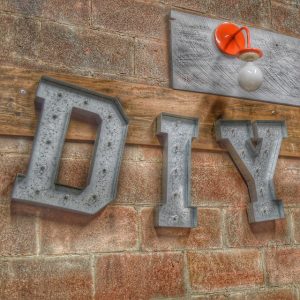 Walking into a beautifully staged home can be like stepping into a dream. But beneath the fresh paint and stylish decor may lurk the hidden pitfalls of a poorly executed DIY renovation. As a potential buyer, recognizing the telltale signs of amateur handiwork can save you from costly surprises. Here are some key areas to scrutinize when evaluating a home.
Walking into a beautifully staged home can be like stepping into a dream. But beneath the fresh paint and stylish decor may lurk the hidden pitfalls of a poorly executed DIY renovation. As a potential buyer, recognizing the telltale signs of amateur handiwork can save you from costly surprises. Here are some key areas to scrutinize when evaluating a home.
Wavy Walls and Uneven Floors
Take a moment to scan the walls and floors. Poorly installed drywall often reveals itself through uneven surfaces, visible seams, or excessive texture in the paint. Similarly, uneven floors can signal improper installation or attempts to hide underlying structural issues. A slight slope might seem quirky, but it could be a red flag for foundational problems.
Misaligned Fixtures and Finishes
A common marker of a rushed renovation is misaligned or poorly installed fixtures. Cabinet doors that don’t close properly, light fixtures that are off-center, or outlet covers that don’t sit flush against the wall indicate a lack of precision. These seemingly minor details can speak volumes about the quality of the overall work.
Inconsistent Paint and Trim Work
Fresh paint is often used to mask imperfections, but sloppy edges, uneven coverage, or paint drips on trim and floors suggest inexperience. Likewise, gaps or mismatched corners in baseboards, crown molding, or other trim work point to shortcuts that might extend to less visible parts of the house.
Amateur Plumbing and Electrical Work
DIY plumbing and electrical updates can be particularly concerning. Check under sinks for messy or mismatched piping, which might lead to leaks or drainage problems. Inspect outlets and switches for proper alignment and functionality. Flickering lights or exposed wires are major red flags that could require professional remediation.
Flooring Faux Pas
Flooring installation demands precision, yet it’s often tackled as a DIY project. Look for gaps between planks, uneven transitions between rooms, or grout lines that are inconsistent in width or texture. These flaws can lead to premature wear or even trip hazards.
Permits and Documentation
Always inquire about permits for major renovations. Unpermitted work is a risk, as it may not meet local building codes. Sellers unwilling or unable to provide documentation should raise your suspicion.
The Takeaway
A beautifully staged home can sometimes disguise subpar renovations. By paying attention to details, you can protect your investment and ensure the dream home doesn’t turn into a nightmare. Remember always to hire a professional to evaluate the property before closing.








